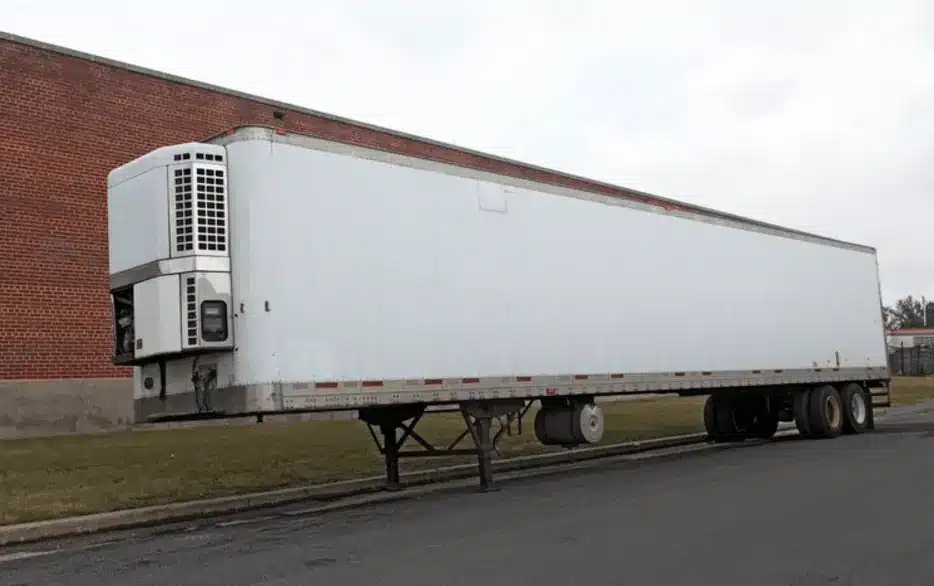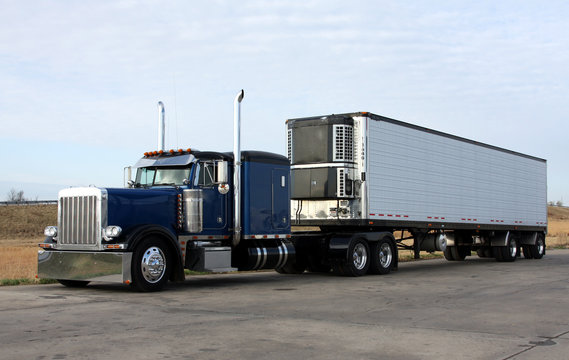Refrigerated Transportation Thermo King: Keeping Product Fresh en route
Refrigerated Transportation Thermo King: Keeping Product Fresh en route
Blog Article
Leading Innovations in Transport Refrigeration: Enhancing Performance and Safety
The landscape of transport refrigeration is undertaking considerable change, driven by developments aimed at improving both performance and safety and security. As these innovations proceed to progress, it is essential to explore their effects on operational practices and regulative conformity, triggering a better evaluation of how they improve the future of transport refrigeration.
Smart Temperature Checking Systems
In the realm of transport refrigeration, smart temperature monitoring systems have actually become a crucial advancement for making certain the honesty of temperature-sensitive items. These innovative systems leverage Web of Things (IoT) modern technology to provide real-time information on temperature level variations, enabling drivers to maintain optimum problems throughout the supply chain. By constantly tracking the temperature of refrigerated containers and cars, firms can quickly determine variances that may jeopardize product top quality.

Furthermore, clever monitoring systems frequently integrate automated notifies and notices, enabling stakeholders to react promptly to any prospective problems. This positive approach not only decreases the risk of putridity but also boosts conformity with regulative standards regulating food safety and pharmaceutical transportation.
The integration of information analytics within these systems also assists in anticipating upkeep, assisting operators to anticipate prospective equipment failures prior to they occur. This capacity minimizes downtime and maximizes functional efficiency, inevitably bring about cost savings.
Eco-Friendly Refrigerants
Smart temperature monitoring systems play an important function in maintaining item high quality, but the efficiency of transportation refrigeration likewise depends upon the option of cooling agents used. As environmental problems increase, the change towards green cooling agents has actually become critical. Standard refrigerants, such as hydrofluorocarbons (HFCs), are infamous for their high International Warming Possible (GWP), contributing significantly to climate adjustment. In comparison, arising options like hydrocarbon-based refrigerants and hydrofluoroolefins (HFOs) present lower GWP choices, supplying both performance and sustainability.
These environmentally friendly refrigerants not only decrease environmental influence but additionally line up with worldwide policies targeted at phasing out unsafe compounds. Their adoption can lead to boosted energy effectiveness, ultimately lowering operating expenses for transportation refrigeration systems. The use of all-natural refrigerants, such as ammonia and carbon dioxide, has obtained traction due to their excellent thermodynamic homes and reduced ecological impact.
Buying environmentally friendly refrigerants is not simply a regulative conformity measure; it stands for a tactical decision that boosts brand name reputation and cultivates customer loyalty. thermo king truck refrigeration units. By focusing on lasting methods, companies can add to a greener future while making sure the integrity of transported goods
Advanced Insulation Products
Utilizing innovative insulation materials is vital for maximizing transport refrigeration systems, as they dramatically improve power effectiveness and preserve constant temperature level control. Conventional insulation techniques usually drop brief in preventing thermal transfer, leading to enhanced power consumption and rising and fall temperature levels within refrigerated compartments.
Arising materials such as vacuum cleaner protected panels (VIPs) and aerogels provide exceptional thermal resistance, enabling thinner accounts without jeopardizing performance. VIPs, for example, use a vacuum layer to decrease convective and conductive heat transfer, making them suitable for space-constrained applications. Aerogels, understood for their permeable and light-weight framework, offer phenomenal insulation while significantly reducing total system weight.
In addition, incorporating phase change materials (PCMs) into insulation systems can better support temperatures during transit. These products soak up and release thermal power, efficiently buffering versus external temperature variations.
The assimilation of these innovative insulation products not just lowers the functional prices related to energy intake but likewise expands the shelf life of temperature-sensitive items. As the transportation refrigeration industry continues to progress, the adoption of cutting-edge insulation technologies will certainly be essential in improving both efficiency and safety in chilled transport.
Automated Path Optimization
The effectiveness of transport refrigeration systems is considerably boosted with automated path optimization, which leverages real-time information and sophisticated algorithms to figure out one of the most reliable courses for shipment. By analyzing different elements such as web traffic patterns, climate condition, and delivery windows, these systems can significantly minimize traveling time and gas consumption.
Automated route optimization minimizes human mistake and subjective decision-making, which can lead to inefficiencies. This innovation makes it possible for fleet supervisors to assign resources better, making sure that refrigerated items keep their needed temperature level throughout the trip. By enhancing courses, firms can also enhance customer complete satisfaction via prompt deliveries.
In addition, automated systems can adjust to unforeseen circumstances, such as road closures or abrupt website traffic spikes, permitting dynamic rerouting. This flexibility not just secures the honesty of temperature-sensitive items but additionally adds to overall functional efficiency.
Carrying out automated course optimization can result in significant expense financial savings while decreasing the carbon impact related to transport. As companies increasingly prioritize sustainability, this advancement stands out as a crucial part in contemporary transportation refrigeration, aligning operational objectives with environmental obligation. Eventually, automated route optimization stands for a significant advancement in the mission see page for performance and security in transportation refrigeration.

Real-Time Information Analytics
Automated course optimization substantially gain from the assimilation of real-time data analytics, which offers important insights right into the performance of transportation refrigeration systems. By using real-time data, transport drivers can monitor temperature changes and devices performance, ensuring that perishable items are maintained within called for parameters throughout transit. This positive technique not just improves the quality of the transferred items but likewise alleviates the threat of putridity and loss.

In addition to improving performance, real-time analytics boosts safety and security by guaranteeing conformity with regulative requirements for temperature level control. This not just safeguards public health but also fortifies a company's reputation - thermo king truck refrigeration units. As the transport refrigeration industry progresses, the integration of real-time information analytics becomes a foundation for driving advancement, sustainability, and operational quality
Final Thought
In verdict, the developments in transport refrigeration dramatically improve both efficiency and security within the sector. Jointly, these technologies represent an essential advancement in transport refrigeration, making certain compliance with regulatory criteria and advertising a greener future.
The landscape of transport refrigeration is undergoing considerable improvement, driven discover this info here by developments intended at enhancing both effectiveness and safety and security.Smart temperature level surveillance systems play a vital duty in maintaining product quality, but the effectiveness of transportation refrigeration also pivots on the choice of cooling agents made use of. Their adoption can lead to Read More Here enhanced power effectiveness, eventually minimizing operating prices for transportation refrigeration systems. Ultimately, automated path optimization represents a substantial innovation in the mission for effectiveness and security in transport refrigeration.
In final thought, the advancements in transportation refrigeration dramatically enhance both efficiency and safety within the sector.
Report this page